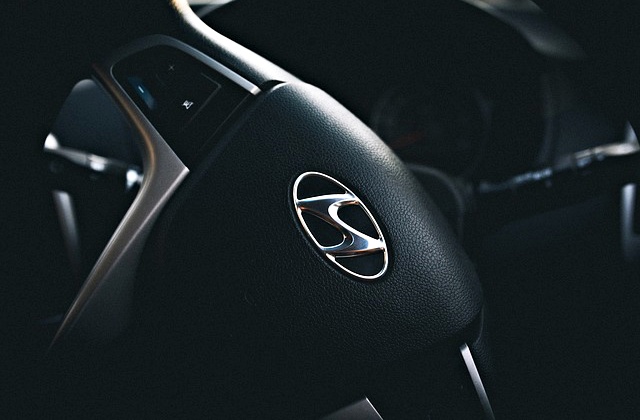Hyundai Motor recently closed down its primary plant in China, but the company said on Tuesday, Feb. 23, that this is just a temporary setup. It was revealed that the reason for the closure was the slow sales this year.
As per Yonhap News Agency, Hyundai Motor shuttered its factory located in the southwestern city of Chongqing in China. The operations in the said plant were first suspended earlier this year, and this was carried out in an effort to improve production efficiency amid the stiff competition in the auto market.
In a statement that was sent to YNA, the Korean automaker stated, "The Chongqing factory is a small-car oriented factory, and we have temporarily halted its operation as we have stopped producing small vehicle models under our strategy of enhancing the efficiency of and upgrading our product lineups. We are pursuing and planning various measures to tide over the slump.
Yicai Global, a local news outlet in China, reported this week that some sources revealed most of the employees at the factory were already placed on leave due to the closure. Hyundai Motor's Chongqing facility is one of the four plants that is being operated by Beijing Hyundai, a joint venture firm that was established by the Korean car brand and China's BAIC Motor.
Beijing Hyundai also has two other plants, and they are located in Changzhou and Beijing. In 2017, the company invested ₩1.6 trillion or around $1.3 billion to construct the Chongqing factory. This factory is capable of producing 300,000 vehicle units per year and mostly produces the localized version of Hyundai's Encino and Verna models.
Market analysts suggested that the cause of Hyundai Motor's slow sales in China could be related to Beijing's economic retaliation against S. Korea. The Chinese government has been protesting Seoul's decision to allow the deployment of an advanced U.S. Terminal High Altitude Area Defense (THAAD) missile defense system in the country. In fact, many other business sectors were also affected by this issue.
Meanwhile, in October last year, The Korea Times reported that Hyundai's sales were already declining at this time due to the tensions created by the THAAD. Since then, the company has been putting a lot of effort into reviving sales by launching new models for the Chinese market.
Not long ago, Hyundai brought its Genesis luxury car brand in China, and it is also aiming to introduce 20 electric vehicle models in the country by the year 2030. Currently, Hyundai Motor still has four plants operating in China, including the shuttered Chongqing plant.



 Dollar Near Two-Week High as Stock Rout, AI Concerns and Global Events Drive Market Volatility
Dollar Near Two-Week High as Stock Rout, AI Concerns and Global Events Drive Market Volatility  U.S. Stock Futures Slide as Tech Rout Deepens on Amazon Capex Shock
U.S. Stock Futures Slide as Tech Rout Deepens on Amazon Capex Shock  Japan Economy Poised for Q4 2025 Growth as Investment and Consumption Hold Firm
Japan Economy Poised for Q4 2025 Growth as Investment and Consumption Hold Firm  SpaceX Pushes for Early Stock Index Inclusion Ahead of Potential Record-Breaking IPO
SpaceX Pushes for Early Stock Index Inclusion Ahead of Potential Record-Breaking IPO  SoftBank Shares Slide After Arm Earnings Miss Fuels Tech Stock Sell-Off
SoftBank Shares Slide After Arm Earnings Miss Fuels Tech Stock Sell-Off  Singapore Budget 2026 Set for Fiscal Prudence as Growth Remains Resilient
Singapore Budget 2026 Set for Fiscal Prudence as Growth Remains Resilient  Hims & Hers Halts Compounded Semaglutide Pill After FDA Warning
Hims & Hers Halts Compounded Semaglutide Pill After FDA Warning  Trump Endorses Japan’s Sanae Takaichi Ahead of Crucial Election Amid Market and China Tensions
Trump Endorses Japan’s Sanae Takaichi Ahead of Crucial Election Amid Market and China Tensions  Asian Stocks Slip as Tech Rout Deepens, Japan Steadies Ahead of Election
Asian Stocks Slip as Tech Rout Deepens, Japan Steadies Ahead of Election  Washington Post Publisher Will Lewis Steps Down After Layoffs
Washington Post Publisher Will Lewis Steps Down After Layoffs  American Airlines CEO to Meet Pilots Union Amid Storm Response and Financial Concerns
American Airlines CEO to Meet Pilots Union Amid Storm Response and Financial Concerns  Bank of Japan Signals Readiness for Near-Term Rate Hike as Inflation Nears Target
Bank of Japan Signals Readiness for Near-Term Rate Hike as Inflation Nears Target  China Extends Gold Buying Streak as Reserves Surge Despite Volatile Prices
China Extends Gold Buying Streak as Reserves Surge Despite Volatile Prices  U.S.-India Trade Framework Signals Major Shift in Tariffs, Energy, and Supply Chains
U.S.-India Trade Framework Signals Major Shift in Tariffs, Energy, and Supply Chains  Uber Ordered to Pay $8.5 Million in Bellwether Sexual Assault Lawsuit
Uber Ordered to Pay $8.5 Million in Bellwether Sexual Assault Lawsuit  Trump Backs Nexstar–Tegna Merger Amid Shifting U.S. Media Landscape
Trump Backs Nexstar–Tegna Merger Amid Shifting U.S. Media Landscape 































